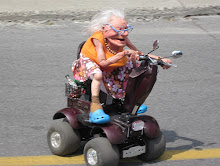.I wondered what sort of books Winnie Jo reads so I looked on the web to see about the book she said she liked and this is what I found. Sound like a good book ,Winnie.
Set in rural Mississippi during the 1960s, the book mentions Martin Luther King Jr.’s march, the death of Medgar Evers, the Freedom Riders, the integration of the University of Mississippi by James Meredith, the sit-ins at lunch counters, Rosa Parks and other major events only in passing.
Instead, The Help focuses on the daily lives of three women- Aibileen (an African American maid raising her seventeenth white child), Minny (Aibileen’s best friend who has lost many jobs for ”sassing” her white employers) and Skeeter (a recent college graduate torn between her old friends in the Junior League and her desire to be a journalist).
I’ve read numerous books on the Civil Rights Movement, but The Help is to be praised for the way it personalizes the Jim Crow Laws and the culture of the time. African American nannies/maids - most notably Mammy in Gone With the Wind – have played a major role in Southern Literature. But The Help tells how those maids might have felt about their situation.
The hypocrisy of white women who trust maids to take care of their children- arguably the most precious thing in their lives- while insisting that the maids use a separate toilet in the garage or backyard because they fear catching ”colored diseases” is exposed. For their part, the maids are torn between their love for the children they care for and their recognition that the children they love will turn out just like their parents. Aibileen has raised seventeen white children since she switches jobs when the children get older and lose their color blindness.
Despite the injustice it exposes, The Help is a hopeful rather than an angry novel. As aspiring-journalist Skeeter searches for Constantine, the maid who raised her, she forms a friendship with Aibileen and Minny that could change their town forever. As a novel and as a work of social history, The Help deserves praise.
Set in rural Mississippi during the 1960s, the book mentions Martin Luther King Jr.’s march, the death of Medgar Evers, the Freedom Riders, the integration of the University of Mississippi by James Meredith, the sit-ins at lunch counters, Rosa Parks and other major events only in passing.
Instead, The Help focuses on the daily lives of three women- Aibileen (an African American maid raising her seventeenth white child), Minny (Aibileen’s best friend who has lost many jobs for ”sassing” her white employers) and Skeeter (a recent college graduate torn between her old friends in the Junior League and her desire to be a journalist).
I’ve read numerous books on the Civil Rights Movement, but The Help is to be praised for the way it personalizes the Jim Crow Laws and the culture of the time. African American nannies/maids - most notably Mammy in Gone With the Wind – have played a major role in Southern Literature. But The Help tells how those maids might have felt about their situation.
The hypocrisy of white women who trust maids to take care of their children- arguably the most precious thing in their lives- while insisting that the maids use a separate toilet in the garage or backyard because they fear catching ”colored diseases” is exposed. For their part, the maids are torn between their love for the children they care for and their recognition that the children they love will turn out just like their parents. Aibileen has raised seventeen white children since she switches jobs when the children get older and lose their color blindness.
Despite the injustice it exposes, The Help is a hopeful rather than an angry novel. As aspiring-journalist Skeeter searches for Constantine, the maid who raised her, she forms a friendship with Aibileen and Minny that could change their town forever. As a novel and as a work of social history, The Help deserves praise.



1 comment:
I loved this book!
Post a Comment